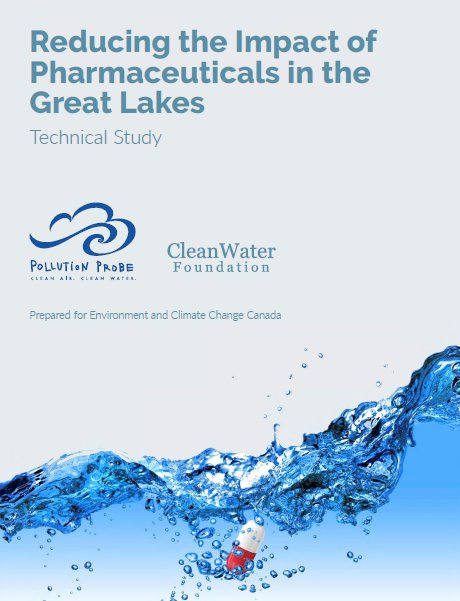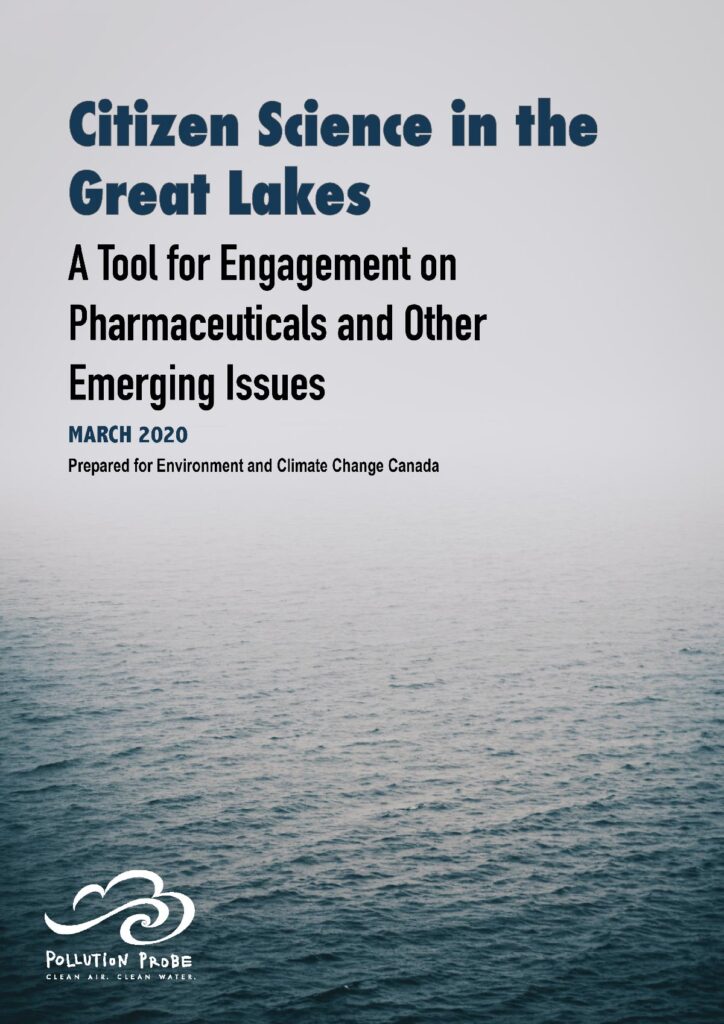The Great Lakes are a unique resource of immense value to Canada and the United States, especially to the Province of Ontario and the eight bordering Great Lakes States. They face many threats, including wetland losses, invasive species, eutrophication, toxic substances and climate change. Over the past decade, pharmaceuticals have received increased attention as contaminants in the lakes, with concerns related to adverse impacts on aquatic ecosystems and on human health.
Citizen Science in the Great Lakes
Pharmaceuticals have been found throughout the Great Lakes and there is currently a lack of systemic sampling, reporting and publicly accessible information on their presence and impacts. Citizen science initiatives have the potential to amplify current knowledge and contribute to filling gaps in existing science and research programs. They have been shown to be an effective means of increasing environmental awareness and supporting conservation efforts because they provide opportunities for participants to feel like an important part of the solution, to share their experiences and to advocate for a cause.
This report, prepared for Environment and Climate Change Canada, is the result of consultation with a wide range of stakeholders working on issues related to pharmaceuticals, toxicology, water quality and citizen science and was developed with the guidance of an expert advisory group. It examines the potential for citizen science to contribute to increased public engagement and the development of a more complete dataset on the presence of pharmaceuticals in the Great Lakes.
Reducing the Impact of Pharmaceuticals in the Great Lakes
This report, produced in 2019, examines what is known about pharmaceuticals in the Great Lakes, their pathways and impacts on Great Lakes aquatic systems and human health. It provides an overview of measures and actions taken within Canada to address this emerging environmental issue, and compares this to research, monitoring and mitigation actions taken by other jurisdictions including the United States and the European Union.
Drawing on an extensive literature review and input from subject matter experts, this report identifies knowledge gaps and proposes further actions that Canada should take to better understand, manage and prevent pharmaceutical pollution in the Great Lakes.

Pharma 101
The Pharma 101 Guide is a great resource for schools, community groups, citizen scientists or anyone interested in learning about pharmaceutical pollution in the Great Lakes.

